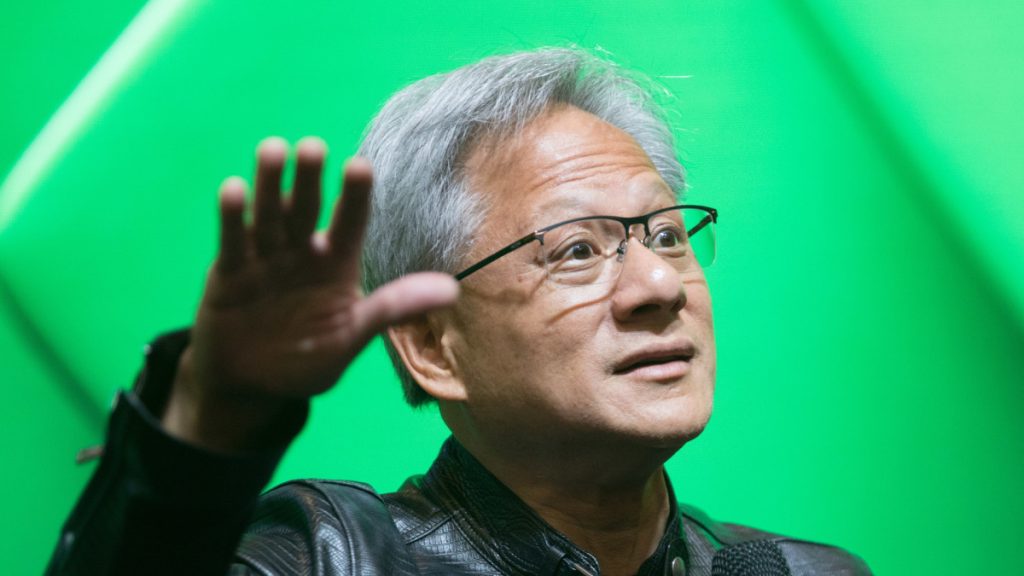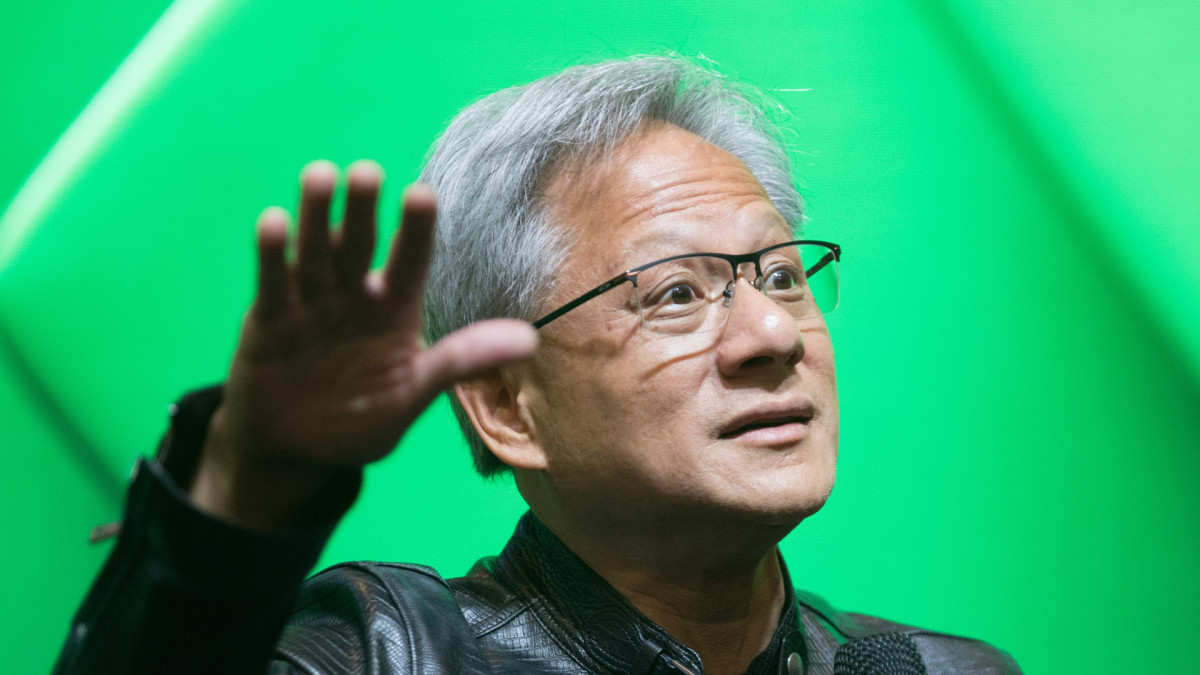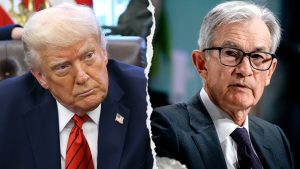Nvidia CEO sends Washington 10-word message on AI chip change

One of the most pressing questions posed by artificial intelligence (AI) investors over the past few months may finally be answered soon.
Since President Donald Trump took office, many people have wondered what AI policy will look like under his administration. Both he and Vice President JD Vance have expressed support for policies geared toward spurring AI growth, making it clear that they believe less regulation is necessary.
💵💰Don’t miss the move: Subscribe to TheStreet’s free daily newsletter 💰💵
Since March 2025, investors have been waiting for May 15. This is when the White House will reveal its new AI diffusion rule, which will constrain its plans for regulating the technology. In the months leading up to it, tech leaders have discussed the policies with President Trump, advocating for him to make some changes.
Nvidia (NVDA) CEO Jensen Huang recently weighed in, laying out exactly how he believes Trump should handle AI chip exports at a highly pivotal time.

Image source: Shutterstock
Jensen Huang has blunt words for Trump on AI diffusion rule
Despite Trump’s anti-AI regulation stance, the stakes are extremely high for tech companies as he prepares to roll out this new policy. The industry is also facing an extremely complicated future as Trump’s tariffs threaten to further complicate trade relations with China.
Since former President Joe Biden rolled out his AI diffusion rule before leaving office in January 2025, tech leaders have expressed strong concern that its restrictions on who they can sell AI chips to could compromise their growth.
Related: Veteran analyst issues warning on Nvidia stock as Huawei readies AI chip
While the White House presented the measure as a necessary step toward protecting U.S. national security by preventing deals with hostile nations, much of Silicon Valley remained unconvinced.
Huang recently joined this group, revealing exactly where he stands on the matter. During a media event, he laid out his take on AI policy, stating, “We need to accelerate the diffusion of American AI technology,” noting that he saw this as being necessary on a global scale.
From Huang’s perspective, the Trump administration’s policies must support AI diffusion as a global necessity that extends far beyond the U.S. As the CEO of a company that has been banned from selling its most advanced AI chips in the Chinese market, it makes sense that Huang would stress the need for global AI diffusion.
“I’m not sure what the new diffusion rule is going to be, but whatever it turns out to be, it really has to recognize that the world has changed fundamentally since the previous diffusion rule was released,” he noted.
One thing that continues to change is China’s growing AI strength. Chinese tech leader Huawei announced plans to start testing its latest AI chip, which it bills as having the potential to be even more powerful than those made by Nvidia. Huang used Huawei to illustrate how close he believes China is to catching up with the U.S. in terms of tech market dominance.
More Nvidia News:
- Jensen Huang shocks the world with Nvidia Quantum Day surprise
- Quantum computing leader has blunt, 9-word take on Nvidia stock
- Amazon directly targets Nvidia with bold new strategy
“China is right behind us,” he stated, but added that it is “very, very close” to catching up with the U.S. He said the U.S. needs to take action to remain at the top of the global AI market, something Vance has made clear the U.S. government wants to prioritize.
The White House may be about to give Nvidia what it wants
Huang isn’t the first Nvidia executive to speak out about AI policy in the age of Trump, especially regarding the diffusion rule. Ned Finkle, the company’s vice president of global affairs, posted a statement to Nvidia’s blog, claiming that such a policy would weaken the nation’s AI competitiveness on a global scale.
Related: Nvidia shareholders shouldn’t worry about China news, says analyst
However, both leaders may be about to get their wish. According to reports, the Trump administration is making alterations to the legislation that would seemingly make it easier for tech companies to sell their chips abroad with fewer restrictions.
According to sources, these changes center around eliminating the part of the rule that divides nations into tiers to determine which countries can receive U.S. chips. These restrictions were met with strong backlash from the tech community.
“Currently, the rule has the world divided into three tiers,” Reuters reports. “Some 120 other countries are in the second tier, which leaves them subject to caps on how many AI chips they can get. And countries of concern like China, Russia, Iran, and North Korea in the third tier are blocked from the chips.”
If these changes to the policy are made, it will likely do much to help spread the type of global AI diffusion that Huang believes is vital to the industry. With two weeks to go before it is released, many investors will be waiting anxiously to learn what Trump is planning for the AI space.
Related: Veteran fund manager who forecast S&P 500 crash unveils surprising update
#Nvidia #CEO #sends #Washington #10word #message #chip #change




